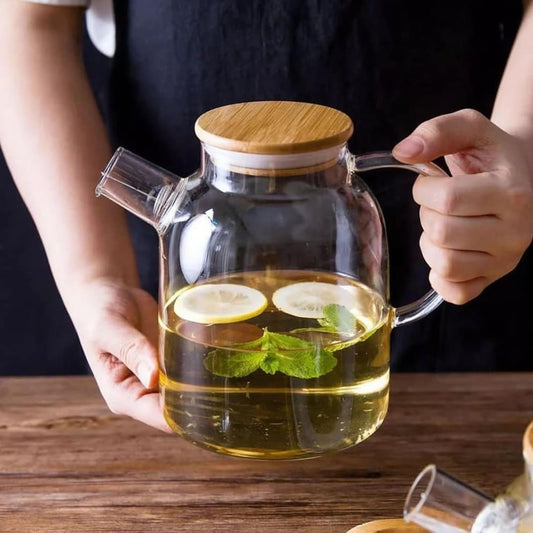Decoding Sugar Alternatives: Which Sweeteners Are Best for You?

Sugar alternatives have gained popularity as people seek healthier ways to satisfy their sweet tooth. Whether you're managing blood sugar levels, reducing calories, or exploring natural options, choosing the right sweetener can be overwhelming. This guide breaks down popular sugar substitutes, their benefits, and the best ways to use them.
Why Consider Sugar Alternatives?
Excessive sugar consumption is linked to various health issues, including weight gain, diabetes, and heart disease. Sugar alternatives offer a way to enjoy sweetness with fewer calories or better nutritional benefits. These substitutes generally fall into three categories:
- Natural Sweeteners: Derived from plants and minimally processed.
- Artificial Sweeteners: Lab-made and intensely sweet with no or low calories.
- Sugar Alcohols: Naturally occurring compounds with a sweet taste but fewer calories than sugar.
Popular Sugar Alternatives
1. Stevia
- What It Is: A natural sweetener extracted from the leaves of the Stevia rebaudiana plant.
- Sweetness: 200-300 times sweeter than sugar.
- Calories: Zero.
-
Best For:
- Beverages like coffee, tea, or smoothies.
- Baking (use stevia blends for better texture).
-
Pros:
- Zero calories and carbs.
- Safe for diabetics as it doesn’t spike blood sugar levels.
-
Cons:
- Can have a slightly bitter aftertaste.
2. Monk Fruit Sweetener
- What It Is: Made from monk fruit, a small green melon native to Southeast Asia.
- Sweetness: 150-200 times sweeter than sugar.
- Calories: Zero.
-
Best For:
- Sweetening drinks, desserts, and sauces.
- Low-carb or keto diets.
-
Pros:
- Natural and calorie-free.
- Contains antioxidants.
-
Cons:
- Can be expensive and less widely available.
3. Honey
- What It Is: A natural sweetener produced by bees from flower nectar.
- Sweetness: Slightly sweeter than sugar.
- Calories: 64 per tablespoon.
-
Best For:
- Drizzling over yogurt, oatmeal, or toast.
- Adding to marinades and salad dressings.
-
Pros:
- Contains trace nutrients and antioxidants.
- Antibacterial properties.
-
Cons:
- High in calories and affects blood sugar levels.
4. Maple Syrup
- What It Is: A natural sweetener made by boiling sap from maple trees.
- Sweetness: Comparable to sugar.
- Calories: 52 per tablespoon.
-
Best For:
- Pancakes, waffles, and baked goods.
- Glazes for meats and vegetables.
-
Pros:
- Rich in minerals like manganese and zinc.
- Offers a distinct, rich flavor.
-
Cons:
- High in natural sugars and calories.
5. Agave Nectar
- What It Is: A syrup made from the agave plant.
- Sweetness: 1.5 times sweeter than sugar.
- Calories: 60 per tablespoon.
-
Best For:
- Sweetening beverages like cocktails and iced teas.
- Vegan-friendly recipes as a honey substitute.
-
Pros:
- Low glycemic index (but still high in fructose).
- Dissolves easily in liquids.
-
Cons:
- High fructose content may harm liver health if overconsumed.
6. Erythritol
- What It Is: A sugar alcohol naturally found in fruits like grapes and melons.
- Sweetness: 70% as sweet as sugar.
- Calories: 0.24 per gram (almost calorie-free).
-
Best For:
- Baking and low-carb recipes.
- Sweetening drinks or sauces.
-
Pros:
- Doesn’t spike blood sugar or insulin levels.
- Tastes similar to sugar.
-
Cons:
- May cause digestive issues if consumed in large amounts.
7. Aspartame
- What It Is: An artificial sweetener made from amino acids.
- Sweetness: 200 times sweeter than sugar.
- Calories: Virtually zero.
-
Best For:
- Diet sodas, chewing gum, and packaged foods.
-
Pros:
- Low calorie and widely available.
-
Cons:
- Controversial due to possible side effects; avoid if you have phenylketonuria (PKU).
8. Coconut Sugar
- What It Is: Made from the sap of coconut palm flowers.
- Sweetness: Similar to sugar.
- Calories: 45 per tablespoon.
-
Best For:
- Baking and cooking.
- Adding to coffee or tea.
-
Pros:
- Contains trace minerals like potassium.
- Lower glycemic index than regular sugar.
-
Cons:
- High in calories and similar in fructose content to sugar.
Choosing the Right Sweetener for You
When selecting a sugar alternative, consider your dietary needs and flavor preferences:
- For Low-Calorie Options: Try stevia, monk fruit, or erythritol.
- For Natural Sweeteners: Use honey, maple syrup, or coconut sugar.
- For Diabetics: Opt for stevia or erythritol to avoid blood sugar spikes.
- For Baking: Combine sugar substitutes with regular sugar for better texture and taste.
Tips for Using Sugar Alternatives
- Start Small: Many substitutes are sweeter than sugar, so use sparingly.
- Experiment with Blends: Mixing sugar alternatives with regular sugar can balance flavor and texture.
- Adjust Recipes: Some substitutes don’t caramelize or dissolve like sugar, so modify recipes accordingly.
Final Thoughts
Sugar alternatives provide a range of options to fit different health goals and culinary needs. From calorie-free sweeteners like stevia to nutrient-rich options like honey, there’s something for everyone. Experiment with these substitutes to find what works best for you and enjoy sweetness without the guilt!
Share:





